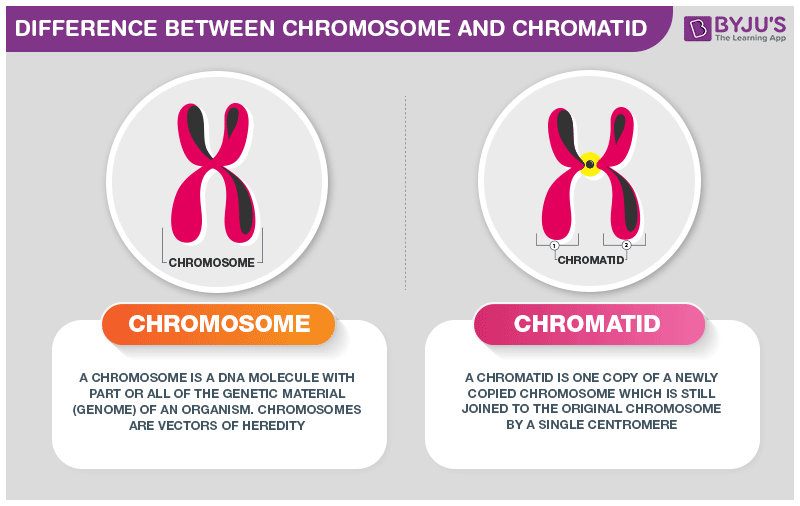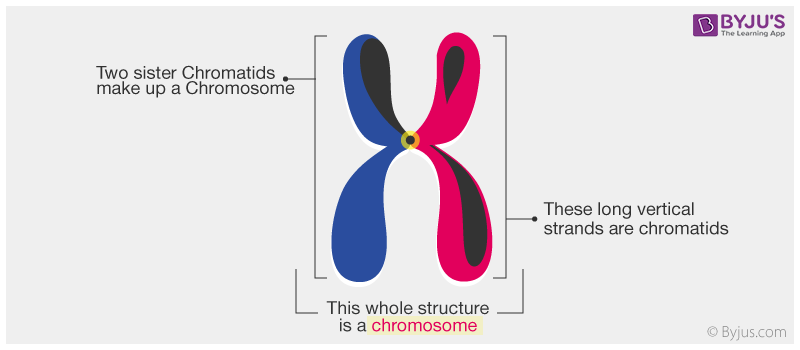We all know what a chromosome is. (if you don’t: Chromosomes are thread-like structures that is present inside the nucleus of all living organism.) But most of us don’t know what a chromatid is. This article aims at helping you understand the meaning and difference between Chromosome and Chromatids.

The following image clearly illustrates the difference between the two in the form of their structure. The two-strand like structures are the chromatid, and the structure as a whole form the chromosome.

Difference between Chromosome and Chromatid
A chromosome is a genetic material that has all the features and characteristics of an organism. Derived from Greek, “Chroma” and “Soma” which translates to “color” and “body” respectively. Now, a chromosome is made up of two strands which are identical to each other, and these are called Chromatids. The major difference between Chromosome and Chromatid are summarized below.
| Difference between Chromosome and Chromatid | |
|---|---|
| Chromosome | Chromatid |
| Their Function is to carry the genetic material | Their main function is to enable the cells to duplicate |
| A chromosome occurs throughout the cell’s life cycle | A chromatid, on the other hand, is created only when the cell passes through mitosis or meiosis stages |
| Chromosomes are not exact copies of each other. One copy of the gene comes from each parent | Sister Chromatids are identical copies of each other |
| Chromosomes have centromeres | The centromere is exclusively present in the sister chromatids. |
| DNA is utilized during macromolecule synthesis
(synthesis of complex proteins) |
DNA is not utilized during macromolecule synthesis |
Conclusion
A chromosome is made up of two Identical Sister Chromatids. And each sister chromatid is joined at the centromere. A copy of each chromosome is inherited from a male parent and a female parent and this explains the character traits possessed by their offspring (such as facial features reminiscent of the parents).
Related Links:
| Cell Division |
| Cells |

Comments